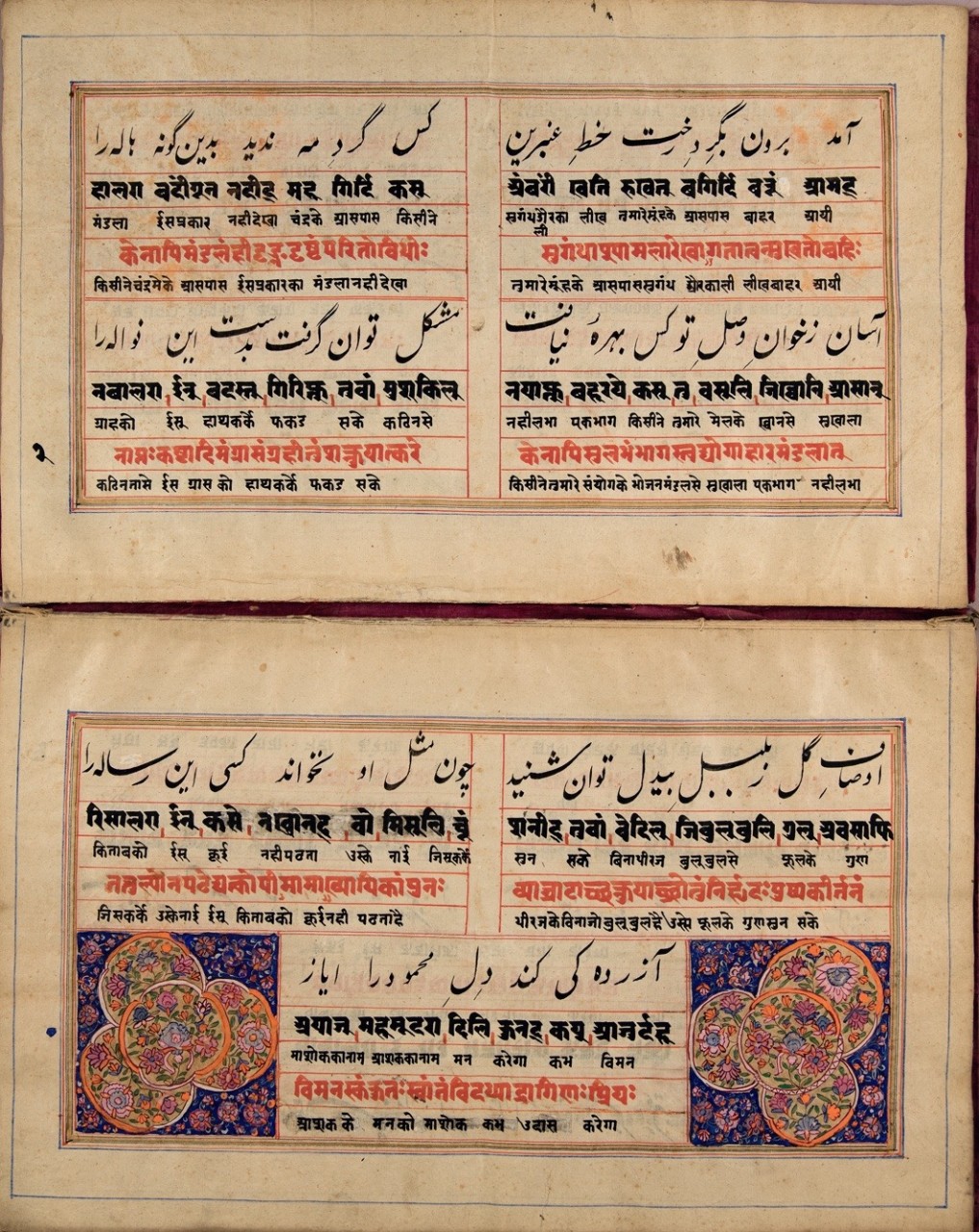Columbia University Libraries Receive Grant to Digitize Manuscripts of the Muslim World
 With support from the CLIR and the Mellon Foundation, Columbia University Libraries and several partner institutions will digitize hundreds of manuscripts and paintings from the Muslim world that date from 1000 to 1900. (Pictured: Persian translation of the Avesta in Pahlavi and Taʻlīq script, dated 1224 AH/1845 CE, 22 x 35.5 cm)
With support from the CLIR and the Mellon Foundation, Columbia University Libraries and several partner institutions will digitize hundreds of manuscripts and paintings from the Muslim world that date from 1000 to 1900. (Pictured: Persian translation of the Avesta in Pahlavi and Taʻlīq script, dated 1224 AH/1845 CE, 22 x 35.5 cm)
Columbia University Libraries is proud to be a partner recipient of a $500,000 grant to support the digitization of Islamic manuscripts and paintings dating from 1000 to 1900. The Manuscripts of the Muslim World project—supported by a Digitizing Hidden Collections grant from the Council on Library and Information Resources (CLIR), which is made possible by funding from the Andrew W. Mellon Foundation—will provide digital access to 576 Islamic manuscripts and 827 paintings that have previously been largely invisible to scholars.
The Free Library of Philadelphia will lead the project, in partnership with Columbia University Libraries, the University of Pennsylvania, Haverford College, and Bryn Mawr College. Representing a great breadth of the Muslim world’s flourishing intellectual and cultural heritage, the manuscripts, codices, and paintings cover mathematics, astrology, history, law, literature, and religion, including copies of the Qur’an and Hadith. Columbia University Libraries’ Preservation & Digital Conversion Division will image 345 manuscripts from the David Eugene Smith Collection, including bound codices, single leaves, and scrolls that concern the broad history of mathematics as well as poetry and religion. A group of faculty and graduate students in religion, history, and Middle East studies have joined Columbia’s librarians to catalog the manuscripts for the project, which will be made available as part of a unified online collection on the University of Pennsylvania’s OPenn site and added to other online repositories.
“A truly collaborative spirit has driven this project,” said Dr. Manan Ahmed, Assistant Professor of History at Columbia, who has contributed to the cataloging process. “It was started by brilliant graduate students, Zeinab Azarbadegan, Mahmood Gharavi, and Sadegh Ansari, who brought together faculty from the religion, history, Middle Eastern, South Asian, and African Studies, and anthropology departments and our tremendous colleagues in the Rare Book & Manuscript Library to get this project rolling. Columbia University Libraries hold veritable treasure troves of manuscripts from the Muslim world and this grant will allow us to share them with the world.”
The bulk of the materials are Arabic and Persian illuminated manuscripts, along with examples of Coptic, Indo-Persian, Samaritan, Syriac, and Turkish calligraphy, and album leaves and paintings. The manuscripts help to document the Islamic Golden Age (the 8th to the 13th centuries), a period when scholars in the Muslim world both helped to preserve works of Greek philosophy and advanced science and mathematics; the Early Modern Period, during which the Ottoman Empire rose as a global power; and the beginnings of modernity.
“Arising from an extraordinary confluence of collecting foresight, scholarly curiosity, and shared expertise, this project shows the modern academic library at its very best,” said Sean Quimby, Director of the Rare Book & Manuscript Library.
The project will begin in April 2018 and continue for three years.
Columbia University Libraries is one of the top five academic research library systems in North America. The collections include over 13 million volumes, over 160,000 journals and serials, as well as extensive electronic resources, manuscripts, rare books, microforms, maps, and graphic and audio-visual materials. The Libraries employs more than 400 professional and support staff and hosts over 4.7 million visitors each year. The website of the Libraries is the gateway to its services and resources: library.columbia.edu.
The Council on Library and Information Resources (CLIR) is an independent, nonprofit organization that forges strategies to enhance research, teaching, and learning environments in collaboration with libraries, cultural institutions, and communities of higher learning. To learn more, visit clir.org and follow on Facebook and Twitter.
The Andrew W. Mellon Foundation, founded in 1969, endeavors to strengthen, promote, and, where necessary, defend the contributions of the humanities and the arts to human flourishing and to the well-being of diverse and democratic societies by supporting exemplary institutions of higher education and culture as they renew and provide access to an invaluable heritage of ambitious, path-breaking work. Additional information is available at mellon.org.